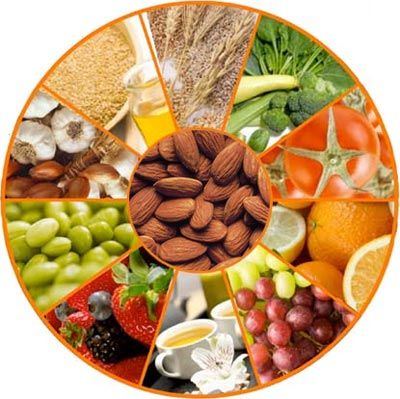A vegan diet often goes hand-in-hand with an appreciation for the powerful healing properties that can be found in foods.
When it comes to healing infections or getting over a nasty bug, far too many people overlook the value and importance of the foods they eat during a period of ill health. The right foods will support your immune system and increase your chances of a fast recovery.
Vegan diet and cold sores
We’ve noticed that one concern which keeps popping up on forums and message boards is the relationship a vegan diet has with cold sores and the herpes virus.
Some have complained of shifting to a vegan diet and experiencing an outbreak of greater severity than usual or even experiencing cold sores for the first time.
It is unlikely that switching to a vegan diet will be the sole trigger for a cold sore outbreak; however, there is some research that suggests a vegan diet may lead to an amino acid imbalance. A lower consumption of lysine coupled with a higher intake of arginine can leave the immune system weakened and open to attack from nasty viruses.
Lysine is an amino acid which is used by the body to build muscles and collagen. It also has a relationship with fellow amino acid, arginine. This component aids cell replication and sneaky viruses take advantage of this, using arginine to multiply and spread within the body. Lysine acts as a buffer and blocks the virus from using arginine to grow.
So where does a vegan diet come in? A lot of foods vegans eat are naturally high in arginine, while much of what is off the menu for vegans – meat and dairy – is high in lysine. So if you’re vegan and you suffer from cold sores, you could be giving the herpes virus a helping hand. Combine this with a low intake of lysine and you may become more prone to recurrent outbreaks.
Don’t panic
Some of the foods richest in lysine are red meats, fish and poultry but there are ways to increase your lysine intake without straying from your commitment to a vegan diet, while also decreasing your intake of arginine.
Keeping the balance
Our bodies need to have slightly more lysine than arginine to be in the best position to fight off viruses, so you’ll need to balance your intake by eating foods high in lysine regularly.

Vegan-friendly foods offering large doses of lysine include, apples, apricots, mangoes and pears. Snacking on these fruits regularly is advised. Cherries and figs are also a good addition to a vegan diet. Preparing avocado salads is another option and, when cooking, try to incorporate peas and some lentils as well as soy products such as tofu.
When first transitioning to a vegan lifestyle it is common to see the amount of seeds and beans incorporated in your diet increase drastically. They are the ‘go to’ alternative when first creating tasty, healthy dishes which do not include meat or dairy.
Many seeds and beans are in fact very high in arginine. This doesn’t mean you need to avoid them altogether, you’ll just need to make sure that your consumption is in ratio with how much lysine you’re getting from other foods.
If you’re constantly experiencing cold sores then foods to keep to a minimum include nuts such as cashews, pistachios, pine nuts and walnuts, as well as sunflower seeds, kidney beans, lima beans and nut butters.
Whole grain wheat flour products are also likely to be high in arginine content.

Spinach, onion, leeks, peppers, mushroom and garlic are also very high in arginine and best used sparingly.
So if you’re concerned that a vegan diet may be causing you to experience cold sores, follow these tips and let us know if your situation improves. If you’re still struggling to get the balance between these two important amino acids then there is always the option of taking a lysine supplement but it is always advised that first, you make changes to your diet.
Combine these dietary tips with a topical over the counter cold sore treatment or home remedy and you’ll be on top of an outbreak in no time.
For more information on cold sore remedies and the microbiology behind a cold sore, visit these pages:
http://www.nhs.uk/Conditions/Cold-sore/Pages/Introduction.aspx
http://www.herstat.com


